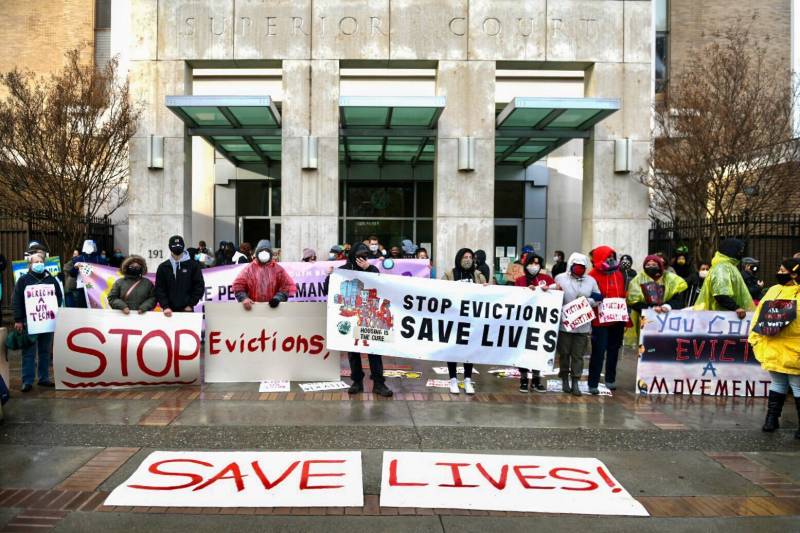The number of COVID-19 infections and deaths “increased dramatically” after states lifted eviction moratoriums last year, according to a new study from UCLA.
Most states banned evictions at the beginning of the coronavirus pandemic to help those unable to pay rent due to lost wages. But last summer, many renters across the country who were still out of work were forced to move out when those rental protections expired.
Coronavirus cases doubled and deaths attributable to the disease jumped fivefold over a four-month period last year following the end of many state moratoriums, the study found.

